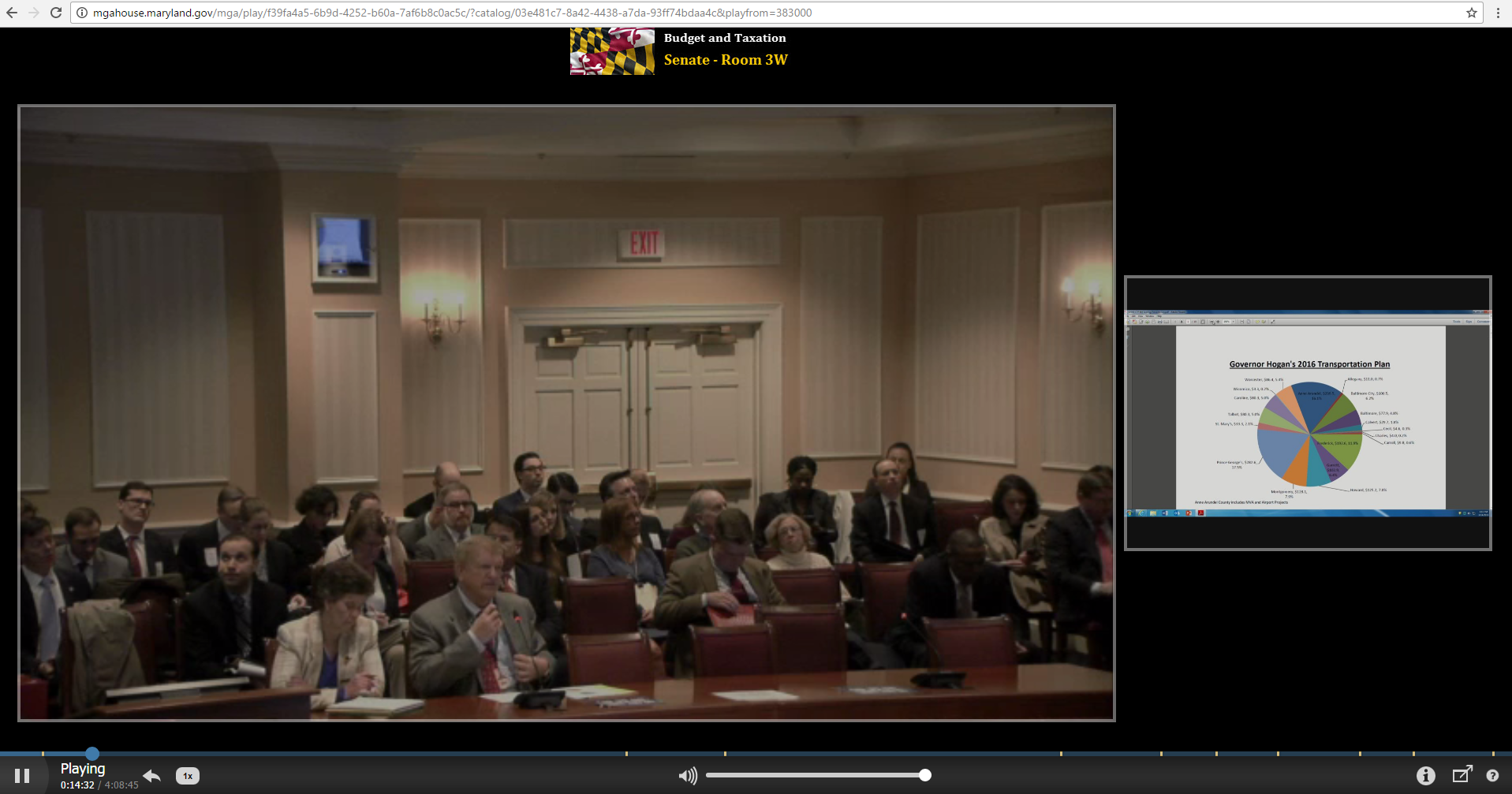By Adam Pagnucco.
What’s the old saying about lying and telling the truth? There are lots of variations, but most of them go something like this:
It’s easier to tell the truth than it is to lie. That’s because when you tell the truth, there’s only one version to remember. But when you lie, you have to keep all the details straight and say it the same way every time. Otherwise, you’ll get caught!
Governor Larry Hogan has probably never heard of this.
As we have noted before, the Governor is waging an all-out campaign to repeal the General Assembly’s transportation project scoring law. The law requires the Maryland Department of Transportation (MDOT) to score every major state transportation project on a variety of criteria, but gives the administration ultimate authority to fund projects of its choice regardless of their scores. The Governor despises the law because it creates potential for embarrassment – he would have to publicly defend any decisions to fund low-scoring projects. So he has falsely claimed that the law requires him to kill projects and said falsely that it was passed without hearings. The Governor even released a list of projects that the law would allegedly kill even though the plain language of the law contradicts him.
One of the projects the Governor says will be killed is the widening of I-81 in Washington County. His kill list describes it as “I-81 Reconstruction from West Virginia line to Pennsylvania line.”
A week after saying that I-81 and dozens of other projects would be killed, the Governor showed up in Hagerstown to announce funding for – you guessed it – I-81 widening. The Hagerstown Herald-Mail reported:
Maryland Gov. Larry Hogan came to Hagerstown bearing gifts on Thursday, announcing more than $115 million in funding commitments for local and regional projects.
The largest chunk, $105 million, is for the first phase of widening of Interstate 81, which recently got underway to widen the heavily-traveled interstate to six lanes from the West Virginia line to Md. 63 near Williamsport.
The first phase of work is from U.S. 11 in West Virginia to Md. 63, including the Potomac River bridges in between…
Another $5 million has been budgeted for design work for the second phase of I-81 widening, Hogan said, allowing the project to progress north to the Interstate 70 interchange.
The Governor’s office issued a press statement reiterating that work on I-81 would proceed. Neither the Herald-Mail article nor the press statement noted that the Governor had already said that I-81 would be killed by the transportation scoring law. There were no caveats in the article or the press statement such as “I-81 will proceed so long as the scoring law is repealed.” Let’s note that the project kill list and the press statement about I-81 were issued only EIGHT DAYS APART.
In which of two alternate realities does the Governor live? The one in which a major transportation project is killed by a new law? Or the one in which the project proceeds without obstruction? It seems to vary by the day.
This is no longer about transportation policy, folks. You can’t rant and rave at a press conference that a project is going to be killed and then show up a week later like Santa Claus to announce that it’s going to be built. Reasonable, sane and trustworthy people don’t behave like that regardless of their political beliefs. That raises a critical question.
Is Larry Hogan capable of telling the truth?


